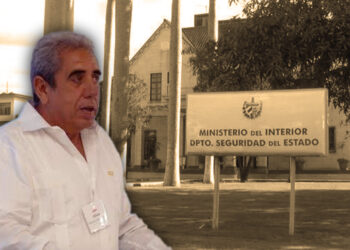Etiqueta: Accor
With López-Calleja Now Dead, Accor Gives-In and Blue Diamond Scores More Hotels in Cuba
HAVANA, Cuba. – On June 21, 2022, tourism magazine Excelencias News Cuba announced that several Cuban and foreign companies with ...
Muerto López-Calleja, Accor cede y Blue Diamond se anota más hoteles en Cuba
La batalla de la compañía canadiense Blue Diamond por gestionar Cayo Largo fue larga pero terminó en victoria. Ahora también ...
SOBRE NOSOTROS
Fundada en 1994, CubaNet es un medio de prensa digital sin fines de lucro, dedicado a promover la prensa alternativa en Cuba e informar sobre la realidad de la isla.
SUSCRIPCIÓN A BOLETÍN
Recibe la información de CubaNet a través de Telegram.
© 2024 CubaNet Noticias | Aviso de Privacidad










